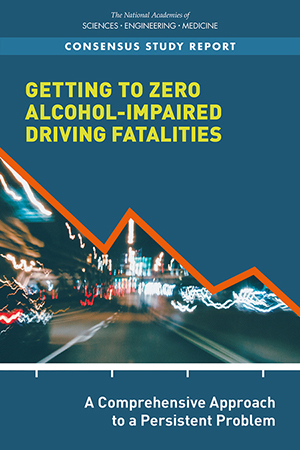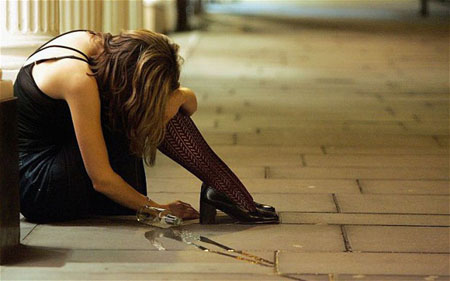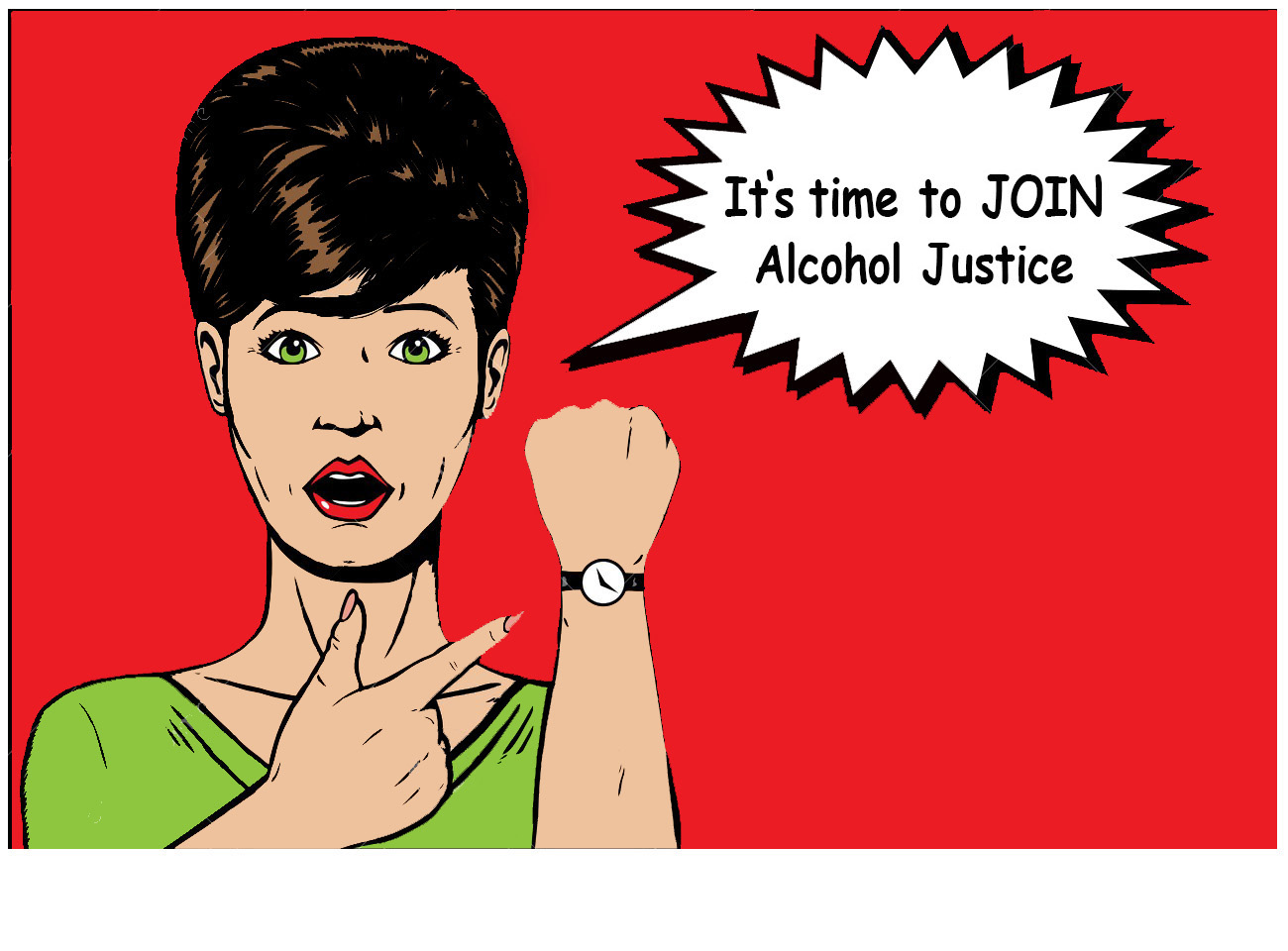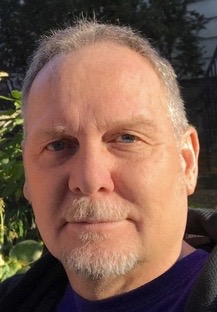Blog
National Academy of Sciences: For Safe Roads, We Need Point 05 BAC
- Details
- Created: Tuesday, January 30 2018 18:48
 The time may have come for the United States to be dragged kicking and screaming into accepting .05 blood alcohol content (BAC) limits for DUI. Currently, every state in the U.S. has a .08 BAC, much higher than the .05 that is commonly enforced throughout much of the developed world. A new report from the National Academy of Sciences (NAS), the pre-eminent research council in the country, recommends we play catch up.
The time may have come for the United States to be dragged kicking and screaming into accepting .05 blood alcohol content (BAC) limits for DUI. Currently, every state in the U.S. has a .08 BAC, much higher than the .05 that is commonly enforced throughout much of the developed world. A new report from the National Academy of Sciences (NAS), the pre-eminent research council in the country, recommends we play catch up.
Alcohol-related crashes take the lives of an American every 49 minutes. In its new report, Getting to Zero Alcohol-Impaired Driving Fatalities: A Comprehensive Approach to a Persistent Problem, the NAS emphasizes that "these deaths are entirely preventable." The key, the authors stress, is to approach the problem at multiple steps in the process. This means simultaneously lowering the amount of alcohol the U.S. drinks as whole, reducing binging and other overconsumption, keeping incapacitated drinkers from getting behind the wheel, and preventing them from repeating the process once they have been caught.
Key among this is the lowered BAC. As the authors note, driving ability has already begun to degrade by the time BAC reaches 0.05%. At least one state-Utah-has accepted this as a reasonable strategy to reduce mortality. Other states may follow; Washington and Hawaii considered similar bills last year, and a 0.05 BAC bill introduced by Assemblyman Felix Ortiz is current before the New York State legislature.
"Thanks are due to Mr. Ortiz for taking this stand," said Michael Scippa, Director of Public Affairs for Alcohol Justice. "Lowering the BAC limit is evidence-based, reasonable, and accepted throughout the world-it's good to see both the states and federal researchers coming into the 21st century."
However, the NAS stresses DUI reform alone is not enough to staunch the tide. They recommend multiple levels of policy change, including tighter restrictions on alcohol marketing, making alcohol less ubiquitous through hour-of-sales and closing hour restrictions, and aggressively providing clinical interventions and referrals to treatment. Most notably-especially in the wake of a nationwide evisceration of alcohol taxes-the report recommends increasing taxes on all forms of alcohol and dedicating the revenue to treatment, prevention, and enforcement efforts. This two-pronged approach, both to reduce demand through tax and mitigate impact through funding, is the backbone of charging for harm.
"If this country wants to take alcohol harm seriously, it needs to embrace Charge for Harm," said Scippa. "This report is a good first step. Let's make it into something real."
The NAS report is available for free download at the National Academies Press site.
READ MORE about how Point .05 Saves Lives.
READ MORE about responsible alcohol taxation and Charge for Harm.
New 4 A.M. Bar Bill Puts Lipstick on a Pig
- Details
- Created: Friday, January 12 2018 18:35
 Shortly after the defeat of SB 386, Scott Wiener’s bill to roll back last call times, Sen Wiener declared he would reintroduce nearly the same bill in 2018. While he claims the new version would limit late last calls to “only” six cities in California, those six cities fall in the metropolitan core for over 30 million residents—over 75% of the population of the state.
Shortly after the defeat of SB 386, Scott Wiener’s bill to roll back last call times, Sen Wiener declared he would reintroduce nearly the same bill in 2018. While he claims the new version would limit late last calls to “only” six cities in California, those six cities fall in the metropolitan core for over 30 million residents—over 75% of the population of the state.
Research, as well as common sense, shows this bill will cost money and lives. This was evident when the previous version of the bill was introduced last year. However, by reintroducing a failed bill immediately after the earlier version was rejected, Sen. Wiener spits in the face of established State Senate norms. The current version claims to be a "new" bill by virtue of limiting late last calls to six cities in the Bay Area, Sacramento, and Los Angeles, but the effect is the same: greater alcohol consumption, more dangerous driving, more late-night violence and property damage. Moreover, the effected areas are in the centers of the most populous parts of the state. Over 75% of the state is within driving distance of late-night areas.
Once again, CAPA and Alcohol Justice call upon the California legislature to do the right thing and kill this bill. It would uphold the standards of the State Senate, and protect the lives of tens of millions of Californians.
READ MORE about Sen. Wiener's cynical and dangerous bill.
WATCH the video about SB 905.
TAKE ACTION to stop SB 905, the revived 4 A.M. Bar Bill.
A Personal Message from Alcohol Justice's Bruce Livingston
- Details
- Created: Thursday, December 28 2017 18:56

Dear Friends,
I've got two teenage boys, and I'm fighting Big Alcohol to protect them and all youth from the annual US catastrophe of over 88,000 alcohol-related deaths, and $250 billion in alcohol-related harm.
Everybody knows somebody whose life had been interrupted or ended by an alcohol-related cause.
At Alcohol Justice we fight for the victims and the survivors and most of all for prevention, but we need your participation to protect our families and communities.
In 2017, Alcohol Justice celebrated 30 years of fighting Big Alcohol and reducing alcohol-related harm.
Truth be told, it's really hard work and we don't always win.
But in 2017, we fought hard and won some major battles:
- We led a successful campaign to STOP a dangerous policy change that would have allowed alcohol sales until 4 a.m. at California bars, restaurants, and clubs (unfortunately it will be re-introduced in 2018)
- We successfully concluded a
four-year long campaign to close the exploitative Whiteclay liquor stores that caused generations of harm to the Oglala Lakota Native Americans of Pine Ridge Reservation - We helped to pass a bill that for the first time requires Responsible Beverage Service training for alcohol servers throughout California
Today I invite you to become a member and join these efforts in 2018.
Become a member, and when you do, I promise to involve you in important battles that can help save the lives of those you love.
From my family to yours, Happy Holidays!
Bruce Lee Livingston
Executive Director/CEO Alcohol Justice
More Articles ...
Subcategories
Help us hold Big Alcohol accountable for the harm its products cause.
| GET ACTION ALERTS AND eNEWS |
STAY CONNECTED    |
CONTACT US 24 Belvedere St. San Rafael, CA 94901 415-456-5692 |
SUPPORT US Terms of Service & Privacy Policy |





